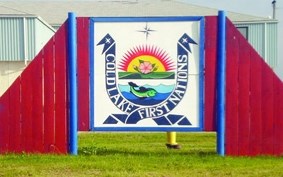Cold Lake First Nations Councillor Walter Janvier is in full support of the Liberal government's decision to launch a national inquiry into the issue of the high number of missing and murdered Indigenous women and girls.
Cold Lake First Nations Councillor Walter Janvier is in full support of the Liberal government's decision to launch a national inquiry into the issue of the high number of missing and murdered Indigenous women and girls.
"There are a lot of people from our area here that are missing and murdered," said Janvier. "They have to be found, so from our nation and any other nation that's affected, right across the country, we have to see some movement."
Initial consultations surrounding the inquiry began back in December and saw the government focus on obtaining input and opinions of survivors and the family members of missing and murdered indigenous women.
In early January an online survey was posted to the Government of Canada's website with the hopes of obtaining more thoughts from Canadians in regards to the design and scope of the inquiry.
"We need to hear from all Canadians - especially survivors, families and loved ones, Indigenous organizations, and provinces and territories - to help us identify the best process from this inquiry," said Carolyn Bennett, Minister of Indigenous and Northern Affairs.
Bennett, along with Jody Wilson-Raybould, Minister of Justice and Attorney General of Canada, and Patty Hajdu, Minister of Status of Women, have been leading the pre-inquiry public engagement sessions.
A discussion guide was also created into order to focus the public meetings on the topics the government wants to be addressed. This includes questions about who should conduct the inquiry, the length of the inquiry, who should be heard and what issues should be considered.
"I believe it should be the authorities first of all who have the means and the budgets to be able to do the investigations and to throw the full resources of the federal government into interviewing and investigating every case and solve as many cases as they can," said Janvier.
"Any kind of investigation should be done thoroughly and not haphazardly. They should get to the bottom of this."
Although Indigenous women make up just four per cent of Canada's female population, 16 per cent of all women murdered in Canada between 1980 and 2012 were Indigenous women. Indigenous women are also three times more likely to report experiencing violence.
Hajdu feels her role in the process is to design an inquiry that both exposes the root causes of violence against Indigenous women and girls and leads to solid actions to prevent future violence.
"This inquiry is necessary to address and prevent future violence against Indigenous women and girls. These women are not statistics - they are daughters, sisters and mothers - and they have the right to live safely and free of violence," said Hajdu.
Once the engagement process is complete a summary of the pre-inquiry findings will be posted online.
No timetable has been set for the pre-inquiry meetings and online survey.
